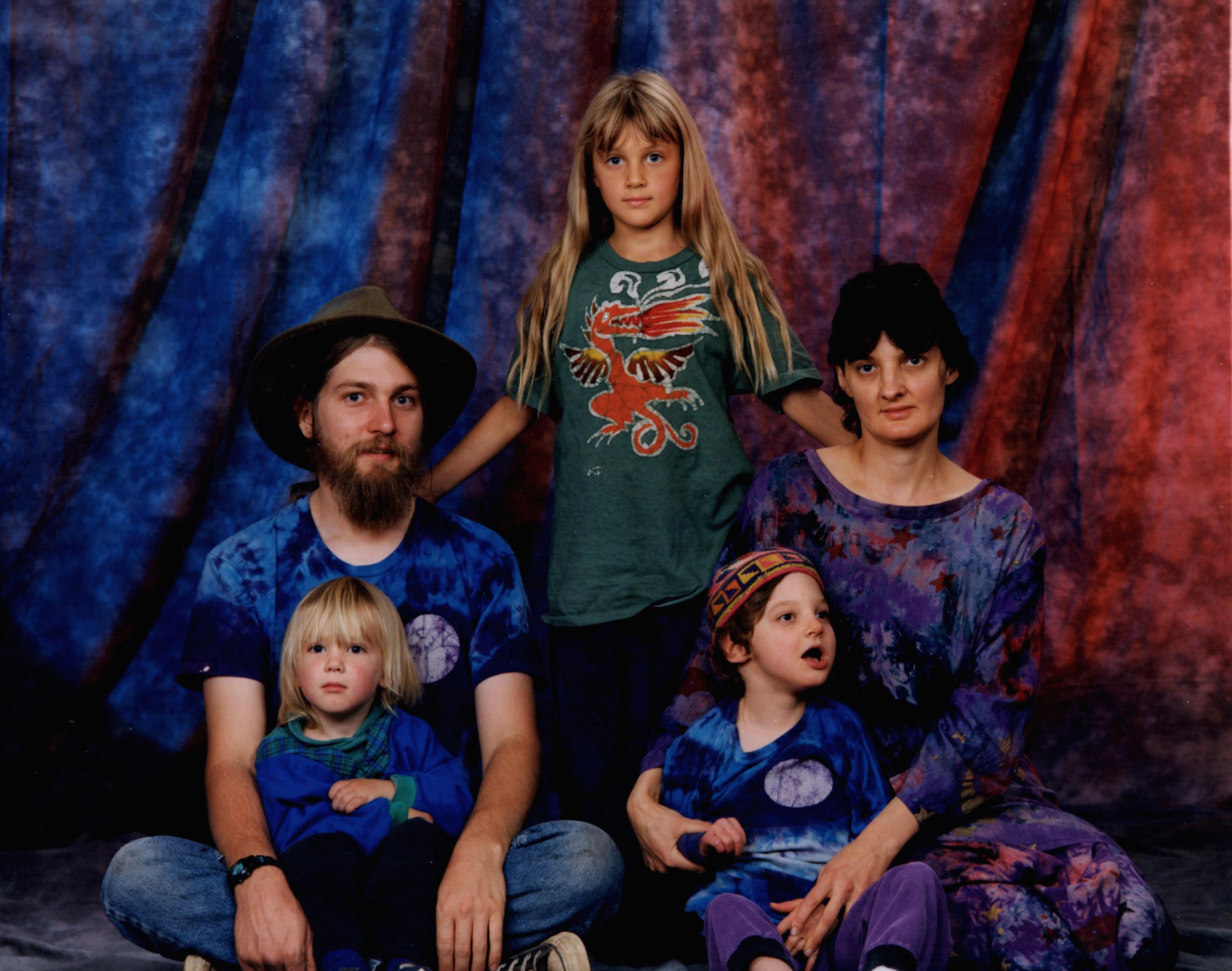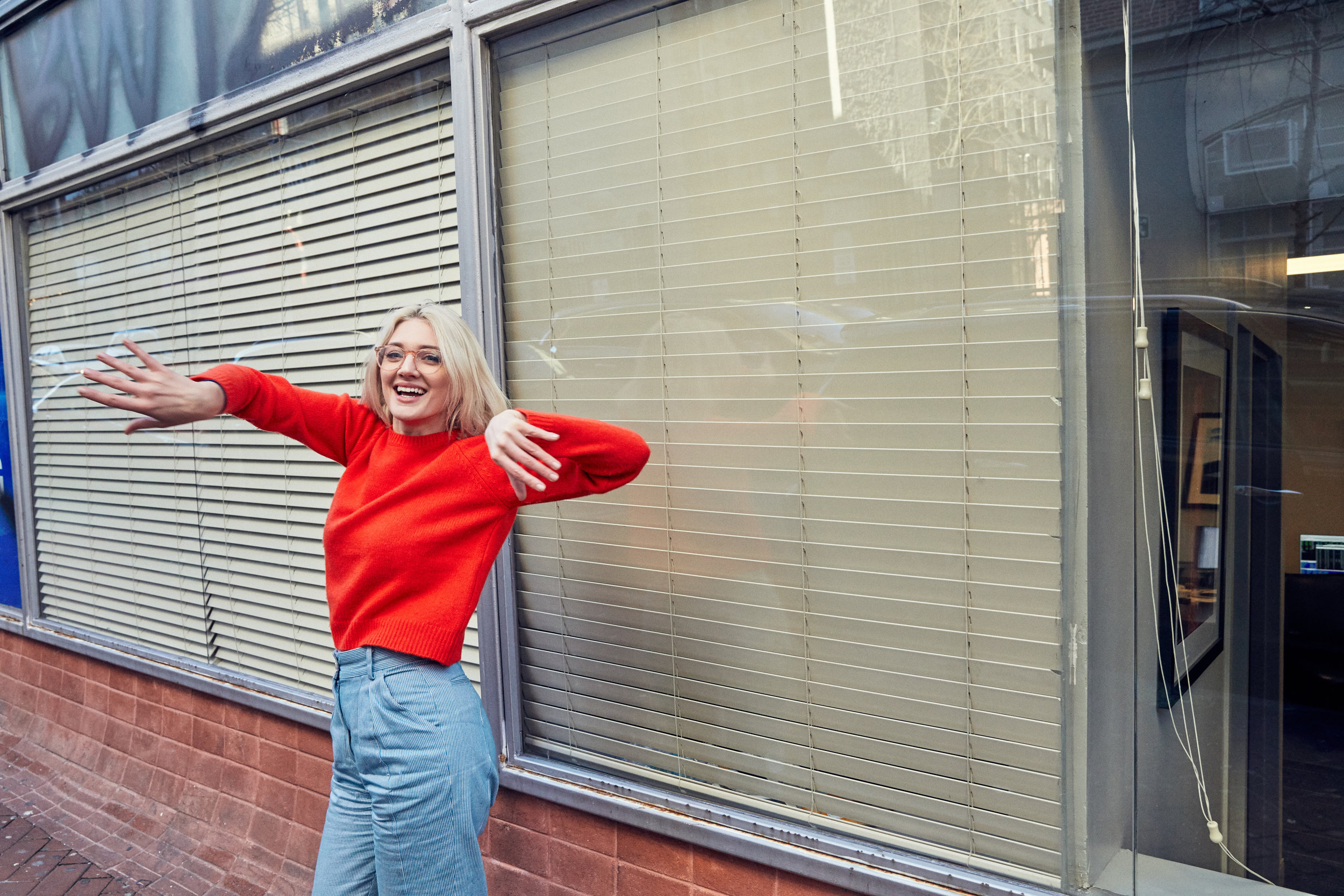The Multihyphenate Amber Schaefer Talks Lessons from Comedy & the Need for Funnier Work with Dirtbag Women
Interview by Mike O'Donnell / Editor
WNW Member Amber Schaefer was otherized at a young age, which provided her with the perspective to recognize the comedic potential in “normal” things. Her time doing sketch comedy then gave her the vocabulary to discuss what makes something funny with future creative collaborators. In our interview below, Amber, based in New York, discusses how the combination of both serves her well in her roles as director, actor, writer, and comedy person. Amber also offers lessons from the comedy world that would serve the creative industry and the one thing she wants to see more of in 2019.
Tell us a bit about your creative background. Who is Amber and how did she get here?
I’m a director, actor, writer, and comedy person, which when I say out loud makes me feel like a nightmare millennial generalist but in reality feels very connected.
As a director, I make sure to allow room for the actor’s process. As an actor, I can anticipate what kind of eye movement might read best on camera. And as a writer, I can imagine how to communicate the story visually, allowing room for more subtext and less expositional dialogue. They are all arms of the same craft.
You’re also a self-described “weirdo.” At what age did you start to feel comfortable embracing this calling?
My parents are lifestyle nonconformists. They’re textbook hippies, but they’re such iconoclasts that they *don’t* listen to the Grateful Dead because that would be too predictable. As a result, I grew up in a very “weird” house that felt “normal” to me because that’s all I knew. So when kids on the playground would call me weird for eating homemade miso soup for lunch instead of the coveted Lunchables, I would retort with a philosophical quandary: “to me, your Lunchables are weird, so— what then is normal?” (I was such a little shit.)
This dynamic is probably what forced my hand into comedy. The comedian’s job is to unveil invisible hegemonic systems, to ask: what is normal? Are Lunchables even legally food? And what’s the deal with airplanes? But to me, many of these systems were not hidden because I was otherized at a young age.
Hot take: this is probably why women, minorities, and neurodivergent people have a more advanced sense of humor. When you’re otherized, you get a much clearer picture of society. Sorry, rich-normie-white-dudes.
“As a director, I make sure to allow room for the actor’s process. As an actor, I can anticipate what kind of eye movement might read best on camera. And as a writer, I can imagine how to communicate the story visually, allowing room for more subtext and less expositional dialogue. They are all arms of the same craft.”
What initially drew you to the world of sketch comedy and improv?
This also comes down to this idea of unveiling, of taking things apart and investigating them. I never understood self-serious work. But I’m thankful it exists or else I’d have nothing to parody.
Do you see UCB as a turning point in your creative development and career?
“Yes and”… no. But mostly no. What going through the program (wow, it really is a cult) at UCB did give me was the vocabulary to talk about what makes something funny. With those tools it’s much easier to create comedy.
But studying improv is like studying history or astronomy; there’s always more to learn and even the people that are really, really good at it still kind of suck and have no idea what the fuck they’re doing. I mean, we still don’t know who shot JFK or if Pluto is a planet. I’ve been doing improv, on and off, for almost a decade and I’m still terrible.
“I never understood self-serious work. But I’m thankful it exists or else I’d have nothing to parody.”
What are some general improv and sketch takeaways that other creatives can apply to their own efforts?
A scene can’t take off comedically without something unusual. In improv, the goal is to let the unusual thing organically reveal itself by listening and genuinely reacting to your fellow improvisors. It could be as simple as the way someone said something, or stumbled over a word. But often, improvisers (LIKE ME!!!) violently shove an unusual thing into the scene in a panic, making the world feel less grounded, lessening the stakes and draining all the Funny out.
I see copywriters and screenwriters make this mistake all the time too. They think comedy is just “weird and random!” When really comedy is context. Even for fantastical work. Ask yourself, if that, then what? If you’re the Sandman, then you put people to sleep with magical sand. If the Sandman works in an office, maybe they put their annoying colleague to sleep with magical sand too. There still has to be an internal logic.
It feels like there’s this misconception that the bells and whistles should be reserved for drama. Or did I just make that up? Regardless, can you share a bit about your process for blending comedy with higher production components and purposeful art direction, sound design, music, and cinematography?
I think it’s changing, which is exciting. I’m seeing more and more beautiful comedy; Corporate on Comedy Central is a great example.
I’ve seen people get irrationally worried that the audience “won’t understand that it’s parody” if, for instance, the music is genuinely good. So they throw in that reality TV “we’re just kidding” music, which is essentially the modern equivalent of a laugh track, except worse, because it’s more sonically grating. It drives me crazy, especially when a great score can really elevate the humor, letting the viewer emotionally connect to the world you’re building and the tropes you’re leaning on.
“Writing is very painful for me. You have no adrenaline to run on and you’re left with your own sick, twisted thoughts. It’s an absolute nightmare for me, but some invisible force within compels me to keep doing it. I don’t like writing, but I love writing.”
Is there a balancing act to incorporating these elements so that they’re additive rather than distracting from the humor?
Absolutely. When I’m making a shot list, I ask myself, how can we punch up the joke cinematically without distracting from the performance? And how does it emotionally serve the narrative? I love fancy camera moves, but they need to be emotionally justified.
Do you feel most in your element as a director, actor, or writer? Or is it more when you’re filling multiple roles that you feel most fulfilled?
They are all fulfilling in their own ways but writing is very painful for me. With writing you have no adrenaline to run on and you’re left with your own sick, twisted thoughts. It’s an absolute nightmare for me, but some invisible force within compels me to keep doing it. I don’t like writing, but I love writing.
What do you see as your creative mission? What do you feel is missing and what do you want to take up and deliver?
There isn’t enough work out there with complicated, three-dimensional female leads. It’s getting better (Russian Doll is a lovely example) but we won’t truly have equality until women can be dirtbags too. I want to make beautiful, funny work with dirtbag women that critiques and investigates hegemonic systems of oppression.
“There isn’t enough work out there with complicated, three-dimensional female leads. It’s getting better but we won’t truly have equality until women can be dirtbags too. I want to make beautiful, funny work with dirtbag women that critiques & investigates hegemonic systems of oppression.”
What would be your dream project or job?
Beautiful, funny work with dirtbag women. Or being fired from Star Wars.
What do you do when Not Working?
When I’m *not* writhing in existential dread that “I’ll never work again” (I much prefer working), I am going to the movies or watching Star Trek.
Who are some other WNW members whose work you admire and why?
Kyle Sauer for his colorful production design & wonderful sense of humor.
Sarah Keats for an almost impossible combination of earnestness and dry wit.
Chelsea Steiger for her artistic courage and unflinching compassion
What’s your favorite thing on the internet this week?
The black hole!!!!







